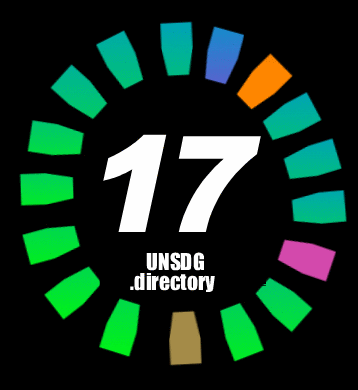‘Climate Apartheid’ between rich and poor looms, UN expert warns…
Hello fellow lifestyle leader,
As you sit here reading this article you will discover something that you probably could have never imagined would ever happen to you…POVERTY!
A UN expert has warned of a possible “climate apartheid”, where the rich pay to escape from hunger, “while the rest of the world is left to suffer”.
Even if current targets are met, “millions will be impoverished”, said Philip Alston, the UN’s special rapporteur on extreme poverty.
He also criticised steps taken by UN bodies as “patently inadequate”.
“Ticking boxes will not save humanity or the planet from impending disaster,” Mr Alston warned.
The Australian native is part of the UN’s panel of independent experts, and submitted his report – which is based on existing research – to the UN Human Rights Council on Monday.

Choose Your UNSDG directory listing package.
‘Climate apartheid’
A key warning was that the world’s poor are likely to be hardest hit by rising temperatures – and the potential food shortages and conflict that could accompany such a change.
In May, Alston’s report on poverty in the UK compared Conservative party welfare policies to the creation of 19th-century workhouses. Ministers said his report gave a completely inaccurate picture, but Alston accused them of “total denial of a set of uncontested facts”.
He said the greatest impact of the climate crisis would be on those living in poverty, with many losing access to adequate food and water.
“Climate change threatens to undo the last 50 years of progress in development, global health, and poverty reduction,” Alston said. Developing countries will bear an estimated 75% of the costs of the climate crisis, the report said, despite the poorest half of the world’s population causing just 10% of carbon dioxide emissions.
Those “who have contributed the least to emissions… will be the most harmed,” he said, warning that the effects could undo 50 years of progress on poverty reduction
On the other hand, Mr Alston cites examples of how the wealthy in Western nations already cope with extreme weather events.
When Hurricane Sandy hit New York in 2012, most citizens were left without power, yet “the Goldman Sachs headquarters was protected by tens of thousands of its own sandbags and power from its generator.” Similarly, “private white-glove fire-fighters have been dispatched to save the mansions” of the wealthy.
This “over-reliance” on the private sector would likely lead to what he termed “climate apartheid” – where the rich “escape overheating, hunger, and conflict”.
As far back as 2007, the Intergovernmental Panel on Climate Change warned that the “poorest of the poor in the world… are going to be the worst hit”.
Mr Alston’s report heavily criticises the lack of action, despite such warnings, over the past several decades.
‘Failure to act’
“Sombre speeches by government officials at regular conferences are not leading to meaningful action,” Mr Alston wrote in a scathing put-down of current policy. “Thirty years of conventions appear to have done very little.”
Yet Mr Alston’s scorn is not only for politicians, but also for the UN Human Rights Council to which he submitted the report.
“The Human Rights Council can no longer afford to rely only on the time-honoured techniques of organizing expert panels, calling for reports that lead nowhere, urging others to do more but doing little itself, and adopting wide-ranging but inconclusive and highly aspirational resolutions,” he wrote.
Instead, it must commission an urgent expert study on the possible options available to avert disaster, and “propose and monitor specific actions”, Mr Alston said.
Threats to democracy
There may also be wider societal implications.
The International Organisation for Migration warned in a 2014 report that estimates for migration as a result of climate change vary wildly – from about 25 million to one billion people by 2050.
Mr Alston’s report contains one estimate of 140 million displaced people in Sub-Saharan Africa, South Asia, and Latin America alone.
Democracy, he warned, could also be at risk as governments struggle to make major changes to cope.
“The human rights community, with a few notable exceptions, has been every bit as complacent as most governments in the face of the ultimate challenge to mankind represented by climate change,” the report said.
He said that the entire human rights community had failed “to face up to the fact that human rights might not survive the coming upheaval”.
Can you imagine living in ‘survival mode’ where you have to ration your use of water (baths), ration your use of electricity (limited use or no TV, lighting). Forget about taking holidays abroad. Your car sits in the driveway as you can’t afford the fuel and increased running costs. You will be concentrating on one thing, paying your food & energy bill!
MLGM Management team

Choose Your UNSDG directory listing package.
There is always an Alternative……


